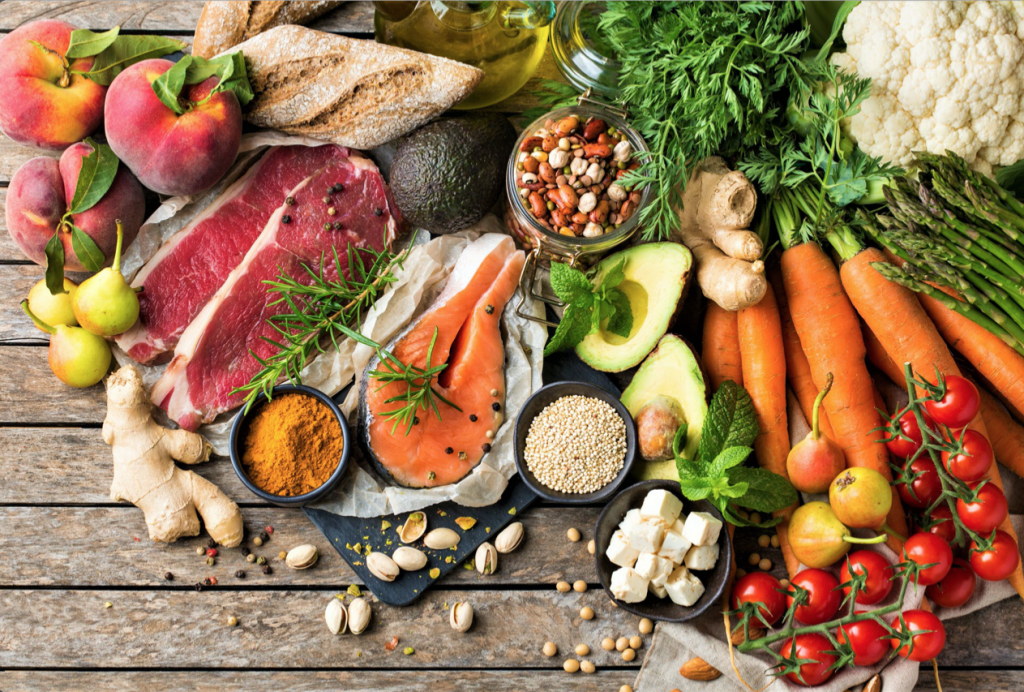Healthy joints: nutrition and lifestyle tips

Nutrition tips for older adults
July 8, 2020
Exercise during pregnancy? YES!
July 18, 2020While there’s no miracle diet for arthritis, fortunately, many foods can help fight inflammation and therefore improve joint health. Exercising and eating balanced diet and generally taking care of yourself are all keys in keeping your joints moving freely. Here are few tips on nutrition and examples of foods to include in your diet when suffering from joint problems.
- Many studies have found that the Mediterranean diet has various health benefits, among others positive influence on heart and joint health. Mediterranean diet incorporates the traditional healthy living habits of people from countries bordering the Mediterranean Sea, including France, Greece, Italy and Spain. In general, this diet is high in vegetables, fruits, legumes, nuts, beans, cereals, grains and unsaturated fats, especially olive oil and oily fish. It usually includes a low intake of meat and dairy food.

Foods to include in your diet
- Sources of polyunsaturated fatty acids (PUFAs) and monounsaturated fatty acids (MUFAs), like oily fish (salmon, sardines, trout, herring, mackerel, etc.), avocado, olive oil, nuts and seeds. Health authorities like American Heart Association or Academy of Nutrition and Dietetics recommend 3-4 oz. of fish, twice a week. Experts on arthritis claim more is better. Hate fish? Try supplement.
- Fruits and vegetables are loaded with antioxidants, vitamins and minerals, they help to rehydrate the organism and are great source of fiber. For instance, the anthocyanins found in cherries, blueberries, raspberries, blackberries and strawberries have a well-known anti-inflammatory effect. Other studies show that cruciferous vegetables, like broccoli, Brussels sprouts, kale, cauliflower contain compounds known to block an enzyme that causes swelling in the joints. Plus, they’re chocked full of fiber, vitamins and nutrients for overall health and well-being.
- Beans and lentils. Foods like red beans, black beans, chickpeas, different sorts of lentils, peanuts are great and inexpensive source of plant protein, fiber and are jam-packed with numerous nutrients.
- Whole grains and cereals, such as oatmeal, brown rice, quinoa. They are great source of fiber and numerous minerals.
- Spices and herbs. Among others, turmeric, ginger, cinnamon (Ceylon variety), cayenne, clove, black pepper, herbs such as oregano or thyme have particularly beneficial influence on health. Turmeric is called a Holy Grail among spices. It is well-studied and agreed that turmeric has extremely positive effect on health, especially on conditions related to high markers in bodily inflammation. Some say that inflammation is the root cause of all diseases.
- Green tea. Thought to be one of the healthiest beverages on the planet. Drinking green tea has numerous advantages, among others it is rich in polyphenols, natural compounds that reduce inflammation.
Foods to avoid
It is recommended to avoid certain foods if you are training to lessen joint pain.
- Added sugars and refined grains, including white rice, pasta and white bread. In general, processed foods. Choose whole grain options if needed.
- Trans fats, hydrogenated oils, deep fried foods.
- Red meats, such as beef, pork, lamb.
- Salt and preservatives.
- Tobacco and alcohol.

What else can you do to maintain your joints healthy?
Is it important to maintain healthy weight as excessive weight has been linked to joint problems, and as you lose those extra pounds you reduce the load on your joints.
Furthermore, being physically active can work wonders for the general well-being, supporting both physical and mental health. Try gradual bodyweight and weight bearing exercises to build strength and stimulate muscle and bone tissue synthesis. Some activities like swimming, bike riding or walking are highly recommended for individuals with joint problems.
However, always listen to your body needs when it comes to rest and recovery. Take time out when needed.
Although sun can have a degenerative influence on the skin, it is advisable to soak some sunshine in the morning or late afternoon when the sun is less intense (without putting sunscreen), as it stimulates vitamin D production in the skin. As much as 15 minutes can have a beneficial effect on the body. Low levels of vitamin D are associated with osteoarthritis.
Another important tip is to quit smoking if you do, as those who smoke are twice as likely to develop cartilage loss.




